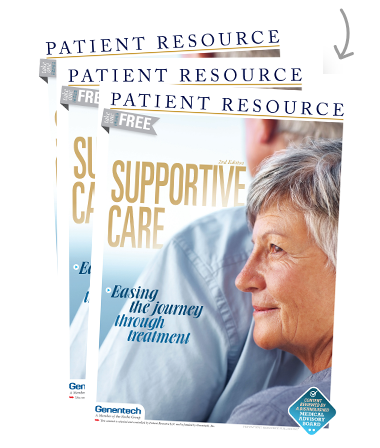Sleep Problems
Return to a restful slumber with effective tactics
Several different types of sleep problems exist. The most common problems among people being treated for cancer are insomnia (the inability to fall asleep or stay asleep), disruption of the wake-sleep cycle, and excessive sleepiness.
Why do sleep problems occur?
Chemotherapy and radiation therapy can disrupt the chemical balance of the body, which can affect how well you sleep, and changes in hormone levels caused by gynecologic surgery, chemotherapy or hormone therapy may cause sleep to be interrupted. However, sleep problems are more often related to other side effects of cancer treatment rather than to the treatment itself. For example, wakefulness is a possible side effect of some medications to control nausea and of corticosteroids (prednisone, dexamethasone). In contrast, opioids and other pain medications may cause excessive sleepiness. Napping and prolonged rest during the day because of fatigue or pain medications can disrupt the wake-sleep cycle and make it difficult to fall asleep at bedtime. Many factors can cause sleep problems in people with cancer, and most are not related to treatment.
Who is most likely to be affected by sleep problems?
People who have an operation often have trouble sleeping in the hospital because of pain as well as noise and treatment schedules. This is especially true for older patients in an intensive care setting. Women who have an operation for gynecologic cancer are likely to have sleep disrupted because of hot flashes or night sweats. For people who have sleep apnea, the condition may worsen during cancer treatment.
When do sleep problems occur?
Sleep problems can occur early on during treatment. For example, people may not sleep well immediately after surgery because of pain and the unfamiliar hospital setting. Sleep may be more troublesome on actual treatment days. Many people with cancer say they cope with sleep problems for several months after treatment has ended.
How are sleep problems managed?
Making some simple changes in daily habits may help you to sleep better (see "Daily habits to help..." box below). Your doctor may review the medications you take and change some of them if he or she thinks that drug interactions or side effects are contributing to your sleep problems. Your doctor may also recommend a medication to help you sleep. In addition to a sleep medication, other medications have been found to help people fall sleep, including antihistamines and antidepressants. Medications prescribed to promote sleep should be taken only for a short time (less than two weeks) so that you do not become dependent on a drug. In addition to medications, there are a number of other daily habits that might help (see "Daily habits to help..." box below).
When should I talk to my doctor about sleep problems?
You should talk to your doctor or nurse if you have sleep problems on a few occasions. Your sleep problems should be managed early, as your body needs proper rest to tolerate treatment and to heal. Talk to your doctor before you take any over-the-counter sleep aids, as these may interact with other medicines you take.
| Daily habits to help you sleep better | |
|
Set a routine for sleeping and waking.
|
Going to bed at the same time each night and waking up at the same time each morning can help make it easier to fall asleep and stay asleep. |
| Limit daytime napping. | If daytime naps are essential, limit them to 20 to 30 minutes, and avoid napping in the late afternoon or early evening. |
| Get daily exercise. | Exercising during the day will help you sleep at night, but avoid exercising within two hours of bedtime, as it may keep you awake. |
| Avoid large meals before bedtime. | Eating a large meal or spicy or sugary foods within four to six hours before bedtime can keep you awake. |
| Limit caffeine and alcohol. | Avoid drinking beverages with caffeine (coffee, cola, tea) during the late afternoon and evening, as they may make it difficult to fall asleep. Also avoid drinking alcohol four to six hours before bedtime; while it may make you sleepy at first, it may disrupt your sleep. |
| Try drinking warm milk or herbal tea. | Either of these beverages may help you get to sleep. |
| Reserve your bed for sleeping. | Avoid having your bed be the place for other activities, such as watching television, talking on the phone, reading or eating. |
| Create a restful environment in your bedroom. | Turn lights off (or make them dim), eliminate noise, set a comfortable temperature and make sure your bedding and pillows are fresh and clean. |
| Avoid lying in bed for a long time without sleeping. | If you cannot get to sleep within about 15 minutes, get up and go into another room until you feel sleepy, then return to bed. |



